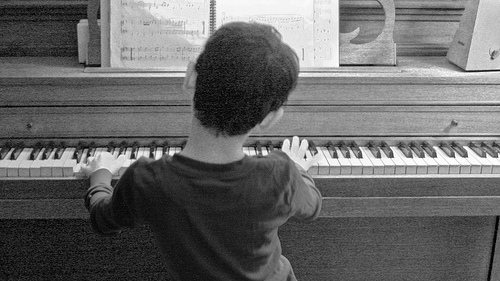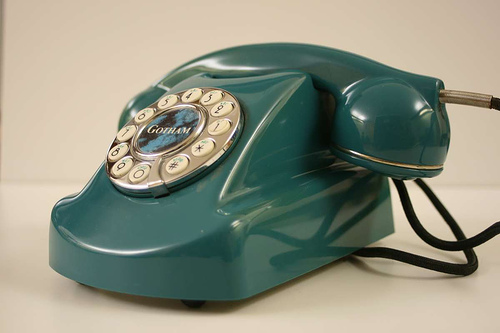
I’m sure we have all had students who are low on motivation at one point or another. It’s not always easy to keep students practicing week after week. To make matters complicated, every student is different: something that motivates one student might not work for the next.
Here are some ideas for increasing motivation among your piano students:
- Take lessons yourself. Put yourself in their shoes. Remember what it’s like to have a busy week and have a hard time finding time for practice? Remember what it’s like to when your pieces don’t play as well in the lesson as they did at home? You can be more genuinely understanding and make better suggestions for solutions if you are taking lessons yourself and going through the same situations that they are. Think you don’t have time for lessons? Try to find someone who’s willing to take you on every other week or even once a month. Continuing your own piano lessons will probably benefit you in more ways that you think!
- Be sure to give them a good variety of repertoire. Make sure there is plenty of variety in the music they are working on. Find out what types of music they like. Supplement their method book(s) with new age piano (think Jim Brickman), hymn arrangements, jazz/blues, pop music, soundtrack/music theater music (think Disney, High School Musical, or Twilight – whatever is currently popular!). No matter the student, however, I always make sure they are working on something classical too. There are so many different types of great music within classical music – I truly believe there is something for everyone!
- Start an incentive program. Let’s face it: some students can be bribed. =) In all seriousness, though, some students truly thrive on being motivated through incentive programs. Incentive programs can help to not only give your students a goal to work towards, but also to reward your students’ hard work and good behavior.
- Try playing more music games in the lesson. Obviously, not every student’s goal is to be a concert pianist. For some students, it may more than enough for them to become functional pianists who have a strong, life-long appreciation for music. With these students, try giving an extra emphasis on theory and ear training games. This may help revive their interest in practicing their repertoire.
- Try doing more creative activities involving improvisation and composition. Sometimes we piano teachers fall into the trap of making piano lessons turn into learning how to follow directions on the page (check out this post about getting the focus back on the sound). Composition and improvisation activities help communicate to the student, “creativity is important!” Then when working on repertoire, try to capture the student’s imagination and get them thinking about what the composers’ creative processes might have been for their pieces. Get them excited about creating a mood or story!
- Find ways to increase studio camaraderie. Some students thrive on social interactions. Help them make “piano friends” by providing occasions when your students can meet and interact with each other. Assign duets between students who have their lessons back-to-back. And if you don’t already, hold monthly group lessons. Plan games and activities that involve having the students work together in pairs or small groups of 3 or 4. Building student friendships within your studio may help them look forward to studio events, lessons, and even practicing at home!
- Provide regular performance opportunities. I once had a student who loved playing in soccer games, but disliked soccer practice. In much the same way, she thrived on piano performances but disliked daily practicing. Having a recital to prepare for helped tremendously! Some students need regular performances to keep them motivated. In addition to your regular annual/semi-annual recitals, try adding other low-stress performance opportunities, such as a Halloween/Christmas Party or a recital at a local senior center. In addition, try holding studio performance times during monthly group lessons. You can even call them “Repertoire Parties” instead of calling them by the more traditional “Performance Class” name. Set the tone by remarking how fun and imaginative each student’s piece sounds, and asking students which piece was their favorite. Hearing other students play may motivate them to improve their own playing or to someday work on some of the same repertoire they hear from other students.
- Have a talk with Mom or Dad. Maybe the problem is simply that the student just needs to practice more. Have a chat with Mom or Dad and ask if they would be willing to give the student a gentle reminder each day to get on the piano. For some students, it’s not that they don’t enjoy practicing; it’s just that they need a reminder or a little prompting to get on the bench each day. Suggest that they make a routine and designate a specific block of time for practice each day. Ask the parents or older siblings to sit at the bench with the student occasionally and ask them about their pieces and what they enjoy about them. Suggest that they walk through or sit and read a book/magazine when the student is practicing and occasionally give praise and compliments to encourage them. These things show the student that practice time is both a priority and something worthwhile and even enjoyable.
- Have them sign a practice contract. Are they still not practicing? If the positive approach in #8 above doesn’t work, it may be time to get a little more aggressive. Have a talk with Mom or Dad again and tell them that a practice agreement is necessary for the student to continue to be a part of your studio. Although you may not enjoy resorting to practice contracts (I know I don’t – click here to view my thoughts on practice requirements), students (and teachers too) generally find lessons are much more enjoyable when the student is prepared each week for lessons and is making progress week after week. Making an agreement may be just what some students need to stay dedicated to piano lessons.
I find that positive reinforcements are best for creating students who want to be there and learn at lessons, but sometimes one must resort to more desparate means. If you’ve tried everything you can think of and things are still not working, it may be time to say goodbye. If you’ve been able to keep communication open with the parent, it should not come as a huge surprise when you let them know that it may be time for lessons to end. Make it clear that they are welcome to find another teacher if they so desire and encourage the student to play piano on their own for fun even though you won’t be giving them lessons anymore. Do your best to make the parting smooth and consensual whenever possible.
Anything to add? How do you keep students motivated?
Photo Credit: woodleywonderworks | CC 2.0




 When potential students’ parents call, do you struggle with figuring out what to say on the phone? What information are they looking for, anyway? This post offers some ideas and suggestions.
When potential students’ parents call, do you struggle with figuring out what to say on the phone? What information are they looking for, anyway? This post offers some ideas and suggestions.
 A few months ago, I received a call from a parent who was looking for lessons for her two daughters. She was a little reluctant to commit to lessons because of a past experience with another teacher: the teacher was an excellent performer, but unfortunately not as great of a teacher. I chatted with her for a few minutes and I told her about my studio and my teaching experience. Then I offered to give her a trial lesson for free, so she could see for herself what my teaching style is like. She agreed to this, and afterwards, was happy to commit to lessons. We’ve been continuing ever since.
A few months ago, I received a call from a parent who was looking for lessons for her two daughters. She was a little reluctant to commit to lessons because of a past experience with another teacher: the teacher was an excellent performer, but unfortunately not as great of a teacher. I chatted with her for a few minutes and I told her about my studio and my teaching experience. Then I offered to give her a trial lesson for free, so she could see for herself what my teaching style is like. She agreed to this, and afterwards, was happy to commit to lessons. We’ve been continuing ever since.